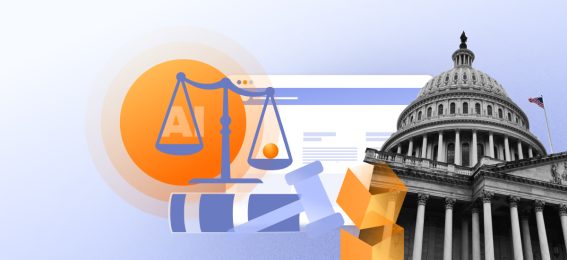What is generative AI in enterprise applications?
Unlike traditional AI that classifies or predicts from existing data, generative AI produces novel outputs that resemble but don’t replicate the training material, enabling enterprises to automate content creation, accelerate development processes, and generate synthetic datasets for machine learning operations.
In enterprise contexts, generative AI transforms business processes by automating complex content generation tasks that previously required human expertise. Organizations leverage these systems for data engineering workflows, automated code generation, technical documentation creation, and synthetic data production for training ML models. This capability proves particularly valuable for enterprises requiring large-scale content production or facing data scarcity challenges in specialized domains.
The technology enables enterprise AI agents that can generate personalized responses, create dynamic reports, and produce contextual recommendations based on real-time business data. For industries like finance and healthcare, generative AI supports regulatory compliance by generating standardized documentation while maintaining consistency across complex organizational processes.
What is the difference between generative AI and traditional AI?
Traditional AI systems focus on pattern recognition, classification, and prediction using existing datasets to make decisions or identify specific outcomes within predefined categories. These systems excel at tasks like fraud detection, recommendation systems, and predictive analytics where the goal is to analyze and interpret existing information rather than create new content.
Generative AI operates by learning the underlying structure and patterns in training data to produce entirely new content that maintains the characteristics of the original dataset. This fundamental difference enables generative systems to create novel outputs rather than simply analyzing or categorizing existing information, opening possibilities for automated content creation, synthetic data generation, and creative problem-solving.
The distinction becomes crucial in enterprise applications where traditional AI supports decision-making through analysis while generative AI enables content creation and automation. Data engineering teams use traditional AI for data quality monitoring and anomaly detection, while leveraging generative AI for automated documentation, code generation, and synthetic data creation to supplement limited training datasets.
For real-time data pipelines, traditional AI provides monitoring and optimization capabilities, while generative AI can automatically create data transformation scripts, generate pipeline documentation, and produce test data for system validation.
How does generative AI support enterprise data engineering?
Generative AI revolutionizes enterprise data engineering by automating code generation, creating synthetic datasets, and producing comprehensive technical documentation that accelerates development cycles and improves system reliability. Data engineering teams leverage these capabilities to generate complex SQL queries, automate ETL pipeline creation, and produce data quality validation scripts without manual coding.
The technology enables automatic generation of synthetic data that maintains statistical properties of production datasets while protecting sensitive information, crucial for testing and development environments where real data access is restricted. This capability supports machine learning workflows requiring large training datasets and enables organizations to overcome data scarcity challenges in specialized domains.
Generative AI assists in creating comprehensive system documentation, API specifications, and data lineage reports that maintain accuracy while reducing manual documentation overhead. For enterprise AI implementations, this automated documentation capability ensures knowledge preservation and facilitates team collaboration across complex data architectures.
In cloud engineering environments, generative AI produces infrastructure-as-code templates, automates configuration management scripts, and generates monitoring dashboards tailored to specific enterprise requirements, significantly reducing deployment time and operational complexity.
Generative AI applications across industries
Enterprise organizations across industries leverage generative AI to address specific operational challenges and accelerate innovation. In financial services, institutions use generative AI for automated regulatory reporting, risk assessment documentation, and personalized customer communication while maintaining compliance with strict industry standards.
Retail and e-commerce organizations implement generative AI for dynamic product descriptions, personalized marketing content, and automated customer service responses that scale with business growth. The technology supports data-driven decision making by generating market analysis reports and competitive intelligence summaries from diverse data sources.
Healthcare enterprises utilize generative AI for clinical documentation, automated treatment plan generation, and synthetic patient data creation for research purposes while ensuring HIPAA compliance and patient privacy protection. Manufacturing companies leverage the technology for automated quality control documentation, predictive maintenance reports, and operational procedure generation.
For AdTech and programmatic advertising, generative AI creates dynamic ad content, generates targeting audience descriptions, and produces campaign optimization reports that improve performance while reducing manual creative overhead. The technology integrates with real-time bidding systems to generate contextual ad variations based on user behavior and market conditions.



